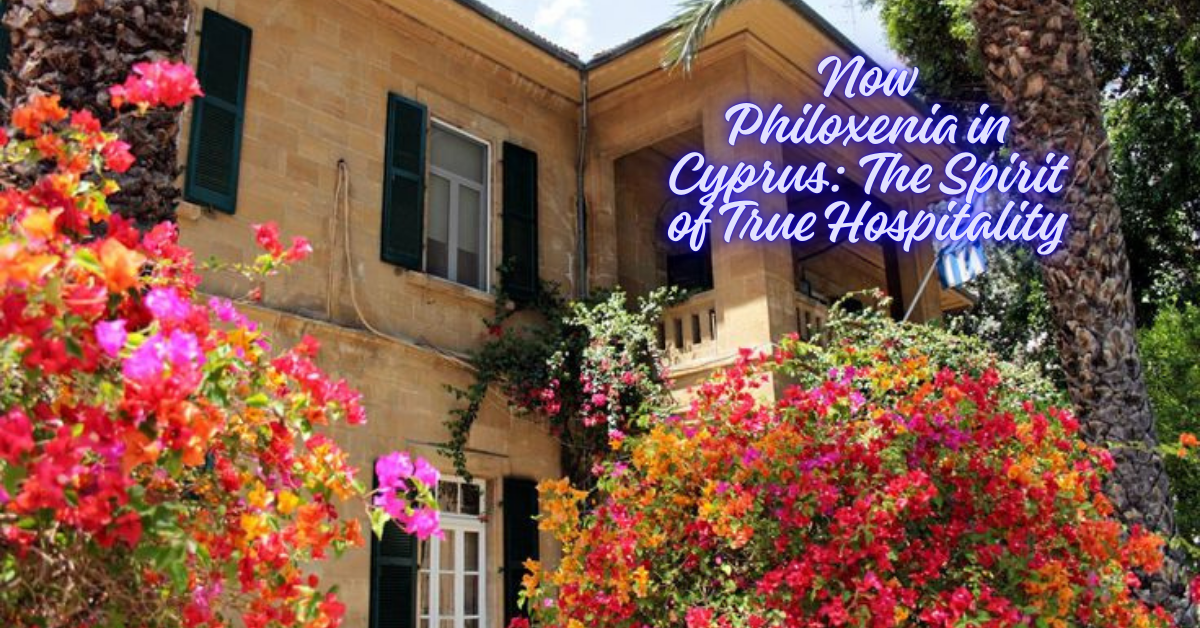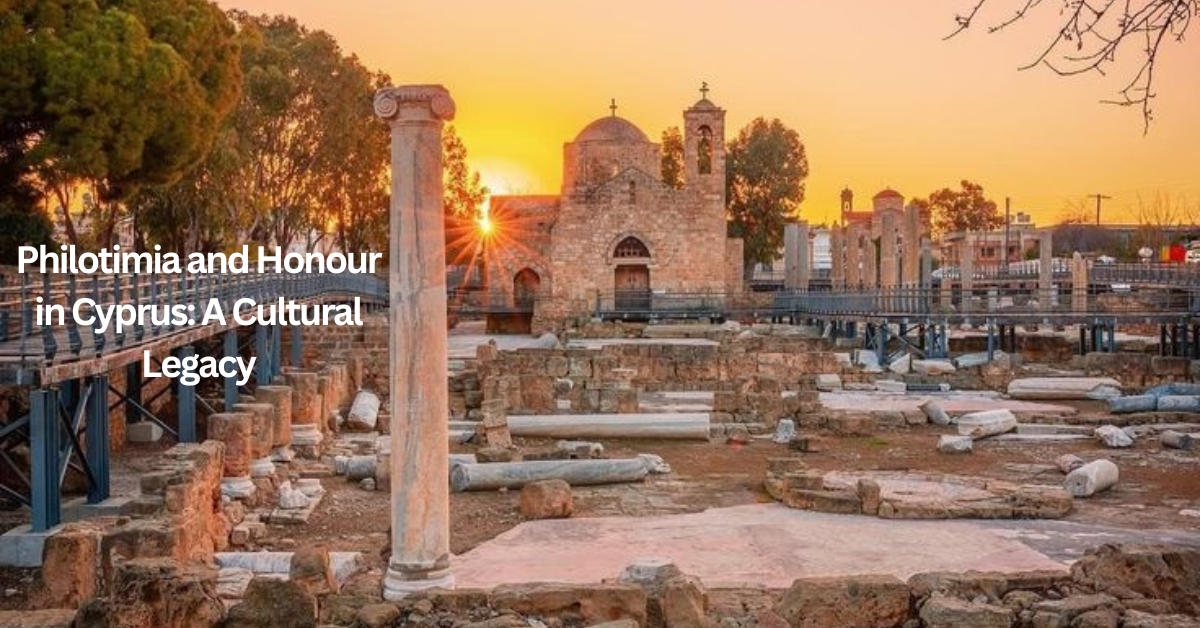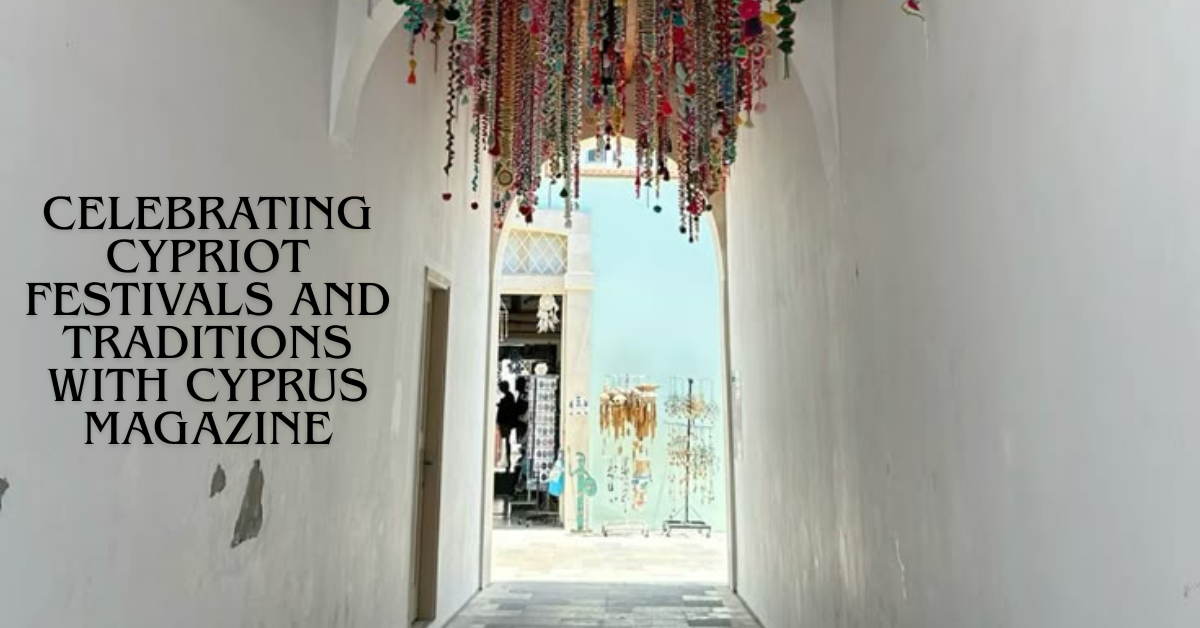In the heart of the Mediterranean, there exists a cultural treasure that has shaped the character of its people and continues to charm visitors from across the globe. This timeless tradition is known as Philoxenia, a Greek word meaning “friend to the stranger.” On the island of Cyprus, Philoxenia is far more than just a concept—it is a way of life, deeply rooted in history and woven into the social fabric.
At Cyprus Magazine, we explore how Philoxenia defines the Cypriot identity, inspires community values, and makes every traveller feel like family. From welcoming strangers with open arms to creating experiences of genuine warmth, hospitality in Cyprus is celebrated in ways that feel both traditional and timeless. This article dives deep into the cultural, historical, and modern significance of Philoxenia, uncovering why it remains at the heart of Cypriot life.
The Ancient Roots of Philoxenia in Cyprus
The tradition of Filoxenia reaches back to ancient Greece, where gods and heroes placed great importance on treating guests with honor. In Cyprus, this ancient virtue took unique forms shaped by the island’s strategic location at the crossroads of civilizations. Merchants, travelers, and pilgrims were offered safety, food, and kindness by locals who believed that showing hospitality was both a sacred duty and a reflection of moral strength.
Even today, the echoes of these traditions can be seen in Cypriot homes, where offering a seat, a drink, or a plate of food to a visitor is not just a gesture but an instinctive response. This deep historical foundation ensures that Filoxenia is not simply remembered, but lived.
Hospitality as the Heartbeat of Cypriot Culture
Cypriot culture is inseparable from its hospitality. Whether in the bustling heart of Nicosia, the quiet villages of the Troodos mountains, or along the sunlit coastline, locals take pride in treating visitors like lifelong friends. Hospitality is less about luxury and more about sincerity, about making strangers feel at home even when far from their own.
Homes, taverns, and even workplaces reflect this philosophy. Meals are shared generously, conversations flow easily, and a guest rarely leaves without a memory of kindness. This way of life represents more than tradition—it is an enduring value that strengthens community bonds and gives Cyprus its distinctive warmth.
Filoxenia and Cypriot Cuisine: A Table of Generosity
Few experiences reveal Filoxenia better than a Cypriot meal. The act of sharing food is at the center of hospitality, and the cuisine of Cyprus is an invitation to taste culture itself. Fresh bread, olives, halloumi, souvlaki, meze platters, and seasonal fruits are more than just dishes—they are symbols of generosity and abundance.
Guests are encouraged to eat until they are full, with hosts often insisting on second servings. Offering food is not merely nourishment but an expression of affection and respect. In traditional villages, meals often become gatherings of storytelling, laughter, and music, turning a simple dinner into an unforgettable celebration.
Filoxenia in Cypriot Villages: Tradition Preserved
Rural communities in Cyprus carry the purest expressions of Filoxenia. In these villages, life moves at a gentler pace, and neighbors know one another as extended family. Visitors wandering through cobblestone streets are often invited into homes for coffee, zivania, or homemade pastries.
These gestures are not reserved for friends or relatives; they extend naturally to travelers and newcomers. Festivals, weddings, and seasonal celebrations showcase how entire communities embrace the spirit of hospitality, where every guest becomes part of the story.
Modern Expressions of Filoxenia in Cyprus
While rooted in tradition, Filoxenia has also adapted to modern times. Hotels, resorts, and tourism businesses across Cyprus infuse this cultural value into their services, ensuring that visitors not only enjoy their stay but also feel genuinely welcomed. The difference between service and hospitality becomes clear in Cyprus, where every interaction is built on warmth rather than formality.
Even in urban centers, Filoxenia is alive in coffee shops, local markets, and cultural events. Strangers often find themselves engaged in conversations with locals who are eager to share stories, recommendations, and smiles. This blending of tradition with contemporary life makes hospitality in Cyprus a living and evolving experience.
Filoxenia in Cypriot Festivals and Celebrations
Festivals across the island provide vibrant examples of Filoxenia in action. Whether celebrating Easter, wine festivals, or village feasts, guests are welcomed with open arms and offered food, drinks, and entertainment. Music fills the air, traditional dances bring communities together, and strangers quickly become friends through shared joy.
These celebrations highlight how Filoxenia extends beyond the home, becoming a collective spirit that unites entire towns. For visitors, joining in a festival is more than an activity—it is an invitation to step into the heart of Cypriot life.
Filoxenia and the Cypriot Way of Welcoming Strangers
Cypriots believe that every guest brings blessings, and this belief is reflected in their eagerness to open doors and hearts. Simple acts, such as offering directions, sharing stories, or inviting travelers for a meal, embody this philosophy. Unlike hospitality that is motivated by expectation, Filoxenia in Cyprus is genuine and unconditional.
This approach not only enriches the visitor’s experience but also strengthens the island’s reputation as a land of warmth and openness. It is this sincerity that makes many travelers return, not just for the beauty of the landscape, but for the kindness of the people.
Filoxenia as a Bridge Between Past and Future
In a rapidly changing world, Filoxenia serves as a cultural bridge. It connects the wisdom of the past with the opportunities of the present, reminding Cypriots that hospitality is both heritage and responsibility. Schools, cultural organizations, and tourism boards highlight Filoxenia as a symbol of national pride, ensuring that future generations continue to carry this tradition forward.
By honoring this timeless value, Cyprus not only preserves its cultural identity but also offers a gift to the world: a reminder that kindness and openness transcend borders.
A Practical Guide to Experiencing Filoxenia
Visitors can embrace Filoxenia by engaging with locals, joining village festivals, or dining at family-run taverns. Accepting an invitation for coffee, learning a few Greek phrases, and respecting traditions are ways to connect deeply with the culture.
For those staying longer, volunteering, attending local workshops, or participating in cultural tours can create meaningful bonds. Experiencing Filoxenia is not about luxury but about openness to genuine human connection.
Table: Ways to Experience Filoxenia in Cyprus
| Experience | Description |
| Village Coffee Visit | Be welcomed with Cypriot coffee and sweets |
| Family-Run Tavern | Taste homemade meze and traditional dishes |
| Local Festival | Join celebrations with music, dance, and food |
| Storytelling with Locals | Hear legends and personal tales over a drink |
| Cultural Workshops | Learn crafts, cooking, or traditional dances |
Frequently Asked Questions
What does Filoxenia mean in Cyprus?
Filoxenia means hospitality and reflects the Cypriot tradition of welcoming strangers with warmth, generosity, and kindness.
How is Filoxenia practiced today?
It is expressed through everyday gestures like offering food, sharing stories, and treating guests like family in both rural and urban areas.
Is Filoxenia unique to Cyprus?
While Filoxenia has Greek origins, the Cypriot expression of it is unique due to the island’s history, traditions, and strong community ties.
How can travelers experience Filoxenia?
By joining village festivals, dining with locals, or accepting invitations for coffee and conversation, travelers can experience genuine hospitality.
Why is Filoxenia important in Cypriot culture?
It strengthens community bonds, preserves cultural heritage, and makes Cyprus a place where visitors feel at home.
Conclusion
Filoxenia is more than a tradition—it is the soul of Cyprus. Rooted in history yet alive in daily life, it shapes how Cypriots connect with the world and how visitors experience the island. At Cyprus Magazine, we celebrate this timeless spirit of hospitality that turns strangers into friends and moments into memories. Whether through a shared meal, a heartfelt conversation, or a festive gathering, Filoxenia ensures that Cyprus remains not just a destination, but a home for all who arrive.




